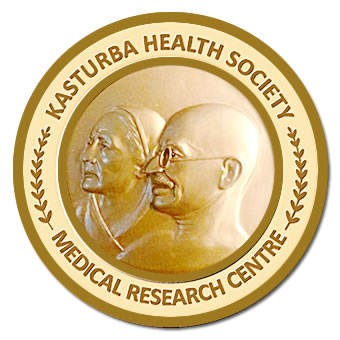Eternally in our hearts- Dr Ashok DB Vaidya
A tribute to Sir

.
It is with profound grief and heavy hearts, MRC-KHS announces the passing of Dr Ashok D B Vaidya, our beloved Professor Emeritus & Former Research Director.
Dr. Ashok D B Vaidya, a renowned scientist, had a MD degree in Internal Medicine and Therapeutics and a PhD in Clinical Pharmacology, from the University of Mumbai.
He was trained in basic microbiology, pathology, and biochemistry at the Haffkine Institute. Later, with Prof. UK Sheth, he initiated the first Unit of Clinical Pharmacology (CP) at GSMC-KEMH, in India. He was awarded the Merck International Fellowship by the Nobel Laureate-Dr. Dickinson W. Richards. At Yale University School of Medicine, he had research training in Clinical Pharmacology and Cardiology.
On his return to India, he joined the Ciba-Geigy Research Centre-Mumbai and conducted Phase 1-2-3 clinical trials of several new drug candidates.
He has dedicated decades of work to drug discovery and development, clinical pharmacology, infectious disease therapeutics, Ayurveda as well as Clinical Medicine, with more than 300 research publications, book chapters, as well as articles and books.
He has served as the Regional Medical Director (South Asia) of Ciba-Geigy, Research Director of Bhavan’s SPARC, Research Director of Kasturba Health Society’s Medical Research Centre (KHS-MRC). He was an Adjunct Professor at Drexel, TDU, and Saurashtra Universities.
He initiated “Reverse Pharmacology” (RP)- a novel path for drug discovery from humans to animals- bedside to bench. RP has been taken on by groups, across India and globally to translate clinical insights from Ayurveda into mechanistic understanding of putative targets and actions. He persuaded the Lord Walton Committee of the British Parliament to upgrade Ayurveda based on the RP approach. His work has, directly and indirectly, influenced a renaissance in the Indian Knowledge Systems.
His thought-leadership led to the development of Vaidya-Scientist programme, Ayurvedic Pharmacoepidemiology, Reverse Nutraceutics, Prakruti Genomics, Ayurceuticals, and Integrative Oncology.
Recently, he was mentoring collaborative studies in Ayurvedic Neurobiology at the Tata Institute of Fundamental Research, with significant results in neuronal mitochondriogenesis. His interest in the spontaneous regression of cancer and anticancer medicinal plants has been a long journey.
Dr Vaidya is survived by his wife Dr Rama Vaidya, his daughter Dr Vidita Vaidya and his granddaughter Alina Vaidya Mahadevan.
Sir’s absence leaves a void that can never be filled, but his spirit will continue to inspire and guide us to carry forward his dreams and visions for our Centre.
